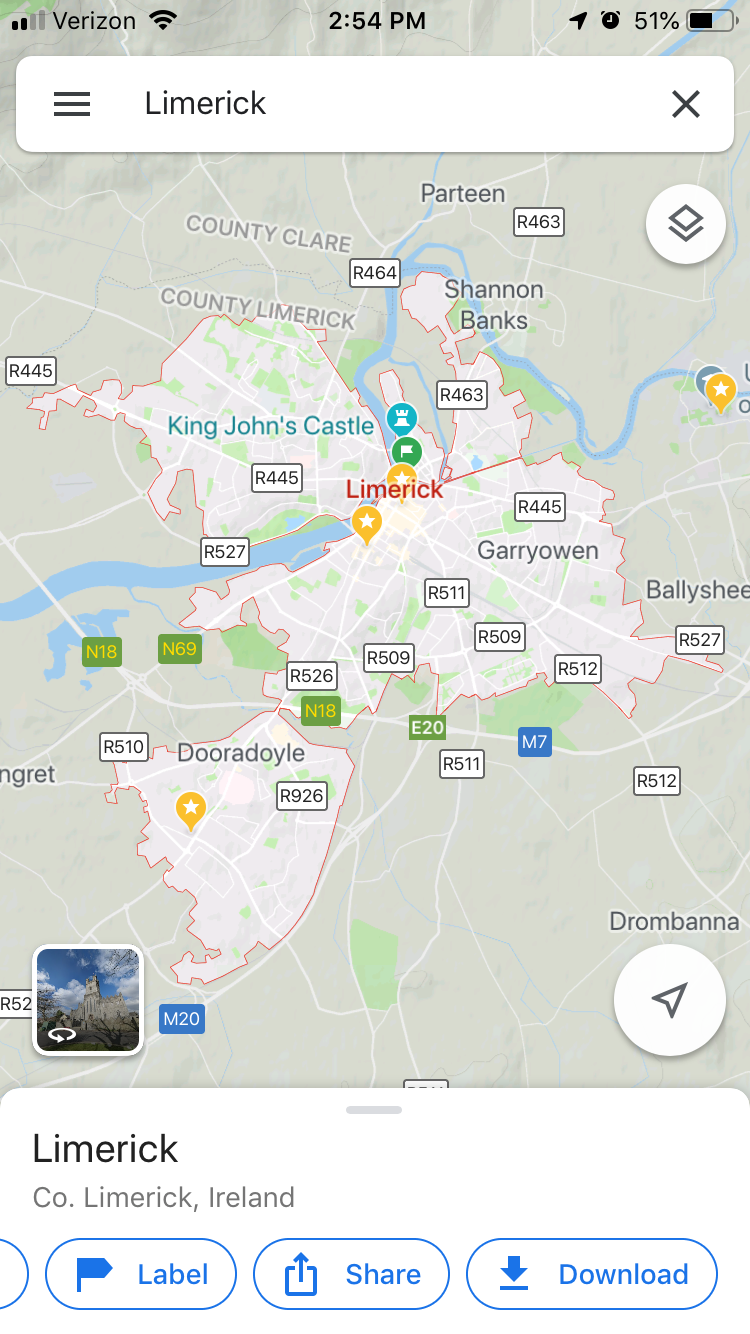5 Must-Do To-Do’s Before Leaving to Study Abroad
- Kaitlyn TN Tech

- Jul 18, 2019
- 3 min read
Updated: Jul 20, 2019
My name is Kaitlyn, and earlier this summer I studied abroad at the University of Limerick in Ireland for 3 weeks. My experience was absolutely fantastic, and I would like to share these five tips in hopes that your study abroad can be wonderful as well! Leaving well-prepared will help to ease stress and maximize your enjoyment and learning!
1. Download WhatsApp
This app is free and allows you to use Wi-Fi to make phone and video calls and send individual and group text messages. In Ireland (and across Europe from what I have heard), it was a key mode of communication with my site coordinator and very commonly used by locals to communicate with international students. Also, it allowed me to stay in touch with my family and friends during my time away from home.

Important note: to avoid using cellular data abroad, make sure to download the app and set up your WhatsApp account BEFORE departing the U.S. Set up requires a confirmation of your mobile phone number by an SMS message, which cannot be received via Wi-Fi.
2. Download Offline Maps on Google Maps
Do this for your host university’s city and excursion destinations to navigate without Wi-Fi or cellular data. This will allow you to explore with greater ease and security. It only shows driving directions offline (not the other options such as walking directions, bus, etc.) but is very useful and helps prevent getting or staying lost in a foreign country.

3. Settle Money Matters in Advance
CASH: First, check with your personal bank about withdrawing some cash ahead of time in the currency of the country you will be studying in. Figuring out a way to withdraw Euros in the U.S. before leaving proved to be much more difficult than I had anticipated. I learned that in most cases, you need to have an active account at a bank and make the request several weeks in advance in order to withdraw foreign currency at both small and large banks. When deciding how much cash to bring, it is important to consider the duration of your time abroad, your typical shopping habits (honestly), gifts you may want to purchase (you may find something really special & meaningful for your loved ones and friends!), number and type of excursions, and public transportation charges (see tip #4).
CARDS: You will need both cash and credit cards to pay while studying abroad. It is best to bring at least two different credit cards in case of a lost, stolen, or frozen card. Split up your cards and cash after you arrive and safely hide some so that you are never carrying all of your money at once. Furthermore, be sure to check what credit card carriers are well-accepted in the area you will be staying. Many of my fellow international classmates struggled to use carriers like Discover or American Express in Ireland, but Visa was nearly always accepted.
4. Research Local Public Transportation
Coming from a small town in Tennessee, I had very minimal experience using public transportation prior to studying abroad in Ireland. Riding the bus was the most convenient and affordable (other than walking) form of transportation in and around Limerick. The bus routes and timetables were confusing to me at first, so I would recommend researching the transportation options and details available prior to arriving for your study abroad. Also, estimate the cash you will need for transportation alone. It cost €2.40 in cash per bus ride in Limerick, and it added up quickly even though I chose to walk a great deal of the time!

5. Pack Early & Essentials Only
Unfortunately, there are spatial limitations to what you can bring to study abroad if you are traveling by air. Thus, it is important to be considerate when packing, and this requires both time and practical evaluation. Begin packing about one month before you depart to allow adequate time to consider your items carefully and buy any necessities you do not already own. Research and base your packing decisions upon your luggage size allowance (both dimensions and weight), and include empty room for keepsakes you will purchase abroad. Look up the weather to help decide what you will and won’t use (in Ireland, I needed my raincoat daily but never wore the shorts I brought) and pack multifunctional clothes.
For more detailed packing advice, please see my blog post “Packing & Planning: Preparation for Studying Abroad.”
https://kaitlynhs13.wixsite.com/kaitlynirelandblog/post/packing-planning-preparation-for-studying-abroad
As you prepare for your amazing adventure abroad, I hope these tips helped!




Comments